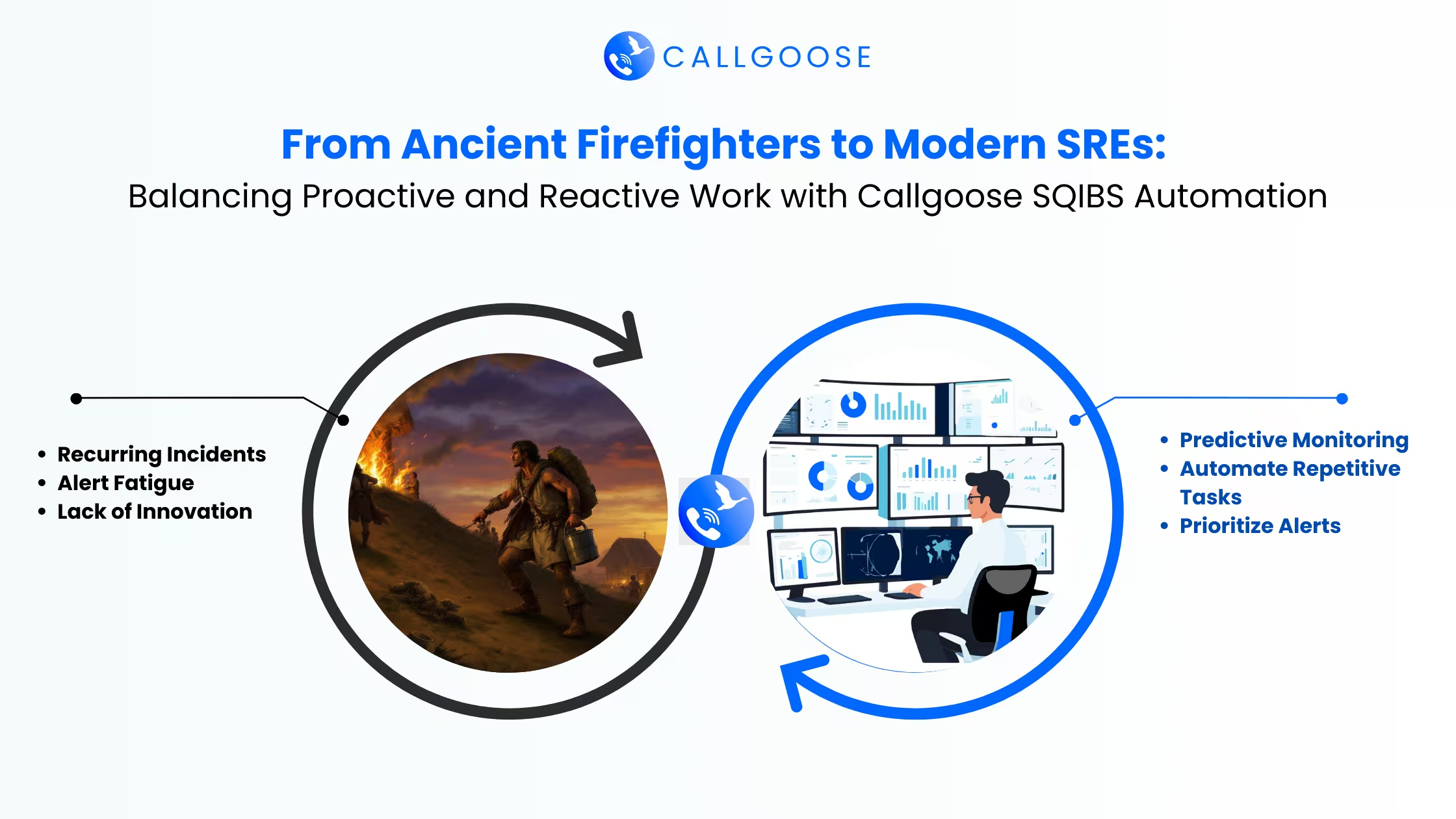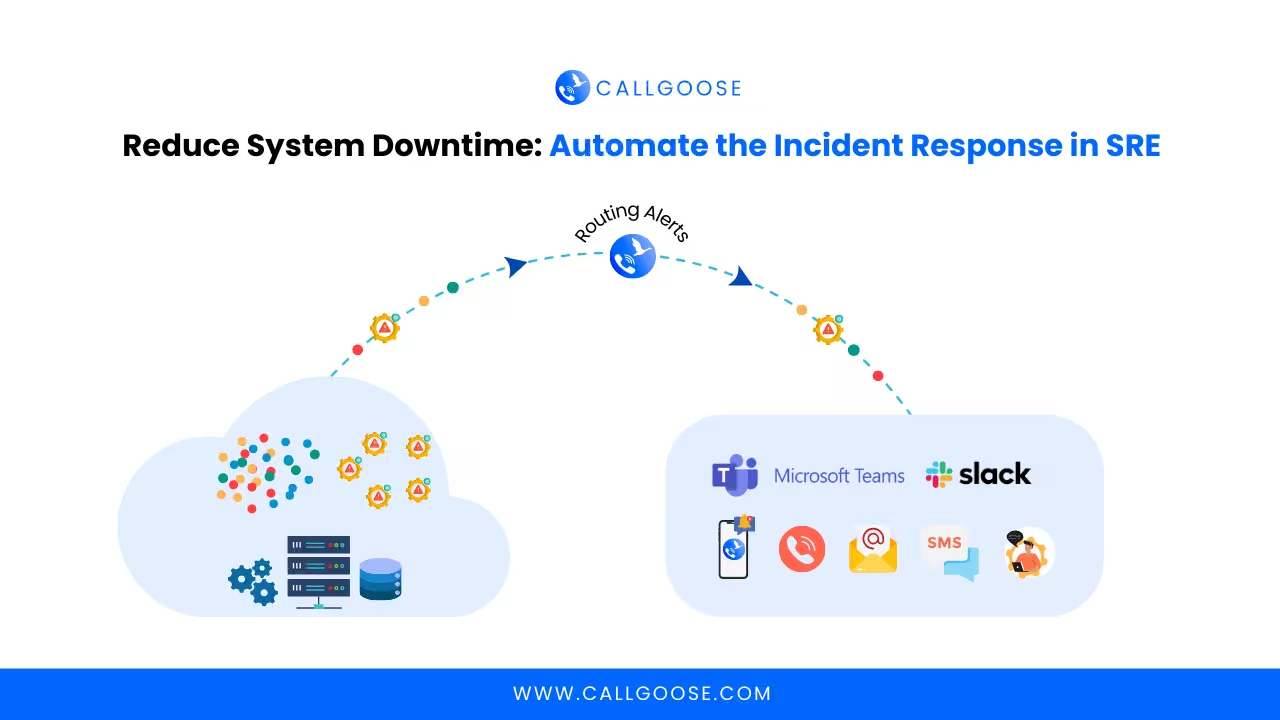
CALLGOOSE

CALLGOOSE
BLOG
05 September 2024 | Tony Philip
4 Minute Read
In the dynamic landscape of technology, AI-driven Incident Management and Site Reliability Engineering (SRE) have emerged as indispensable tools for maintaining the reliability and performance of digital systems. With AI algorithms increasingly used to detect, diagnose, and resolve incidents, organizations are experiencing unprecedented speed and efficiency in incident response. However, amidst the wave of innovation, the importance of human oversight cannot be overstated.
This blog explores the critical need for human oversight in AI-driven incident management and SRE, emphasizing the symbiotic relationship between artificial intelligence and human expertise in ensuring reliability and resilience in digital operations.
The Rise of AI in Incident Management and SRE : AI-driven incident management and SRE have revolutionized traditional approaches to reliability, offering organizations advanced capabilities for detecting, diagnosing, and resolving incidents. AI algorithms can analyze vast amounts of data in real-time, identify patterns, and predict potential issues before they escalate. This proactive approach to incident management enables organizations to minimize downtime, enhance system performance, and improve overall reliability.
The Importance of Human Oversight: While AI algorithms offer unparalleled speed and efficiency, human oversight is crucial for ensuring the accuracy, relevance, and ethical implications of AI-driven decisions. Human operators bring a wealth of experience, intuition, and contextual understanding to incident management and SRE, complementing the capabilities of AI systems in the following ways:
Striking the Balance: Achieving the optimal balance between AI-driven automation and human oversight is essential for maximizing the effectiveness and reliability of incident management and SRE. Organizations can foster this balance by:
In the era of AI-driven incident management and SRE, human oversight remains indispensable for ensuring the accuracy, relevance, and ethical implications of AI-driven decisions. By harnessing the symbiotic relationship between artificial intelligence and human expertise, organizations can achieve reliability, resilience, and innovation in their digital operations. Embracing human oversight as a vital component of AI-driven incident management and SRE is essential for navigating the complexities of modern technology and driving sustainable success in the digital era.
By leveraging these tools and using Callgoose SQIBS Incident Management and Callgoose SQIBS Automation Platform , you can set up robust AI-driven incident management automation workflows and SRE to oversight the vital components to enhance efficiency, reliability, and responsiveness in your IT operations.
Refer to Callgoose SQIBS Incident Management and Callgoose SQIBS Automation for more details

BLOG
5m Read
How Callgoose SQIBS Benefits Your Software Development and IT Consulting Firm
15 February 2025
|
Tony Philip
Introduction Software development and IT consulting firms face ongoing challenges in maintaining development environments, IT infrastructure, and operational efficiency. Many tasks are manually repeti...

BLOG
5m Read
From Ancient Firefighters to Modern SREs: Balancing Proactive and Reactive Work with Callgoose SQIBS Automation
07 December 2024
|
Amelia Gaby
In Ancient Rome, the Vigiles, often referred to as the world’s first firefighters, were tasked with not only extinguishing fires but also preventing them. Their role was both reactive and proactive—mu...

BLOG
5m Read

CALLGOOSE
SQIBS
Advanced Automation platform with effective On-Call schedule, real-time Incident Management and Incident Response capabilities that keep your organization more resilient, reliable, and always on
Callgoose SQIBS can Integrate with any applications or tools you use. It can be monitoring, ticketing, ITSM, log management, error tracking, ChatOps, collaboration tools or any applications
Callgoose providing the Plans with Unique features and advanced features for every business needs at the most affordable price.
Unique Features